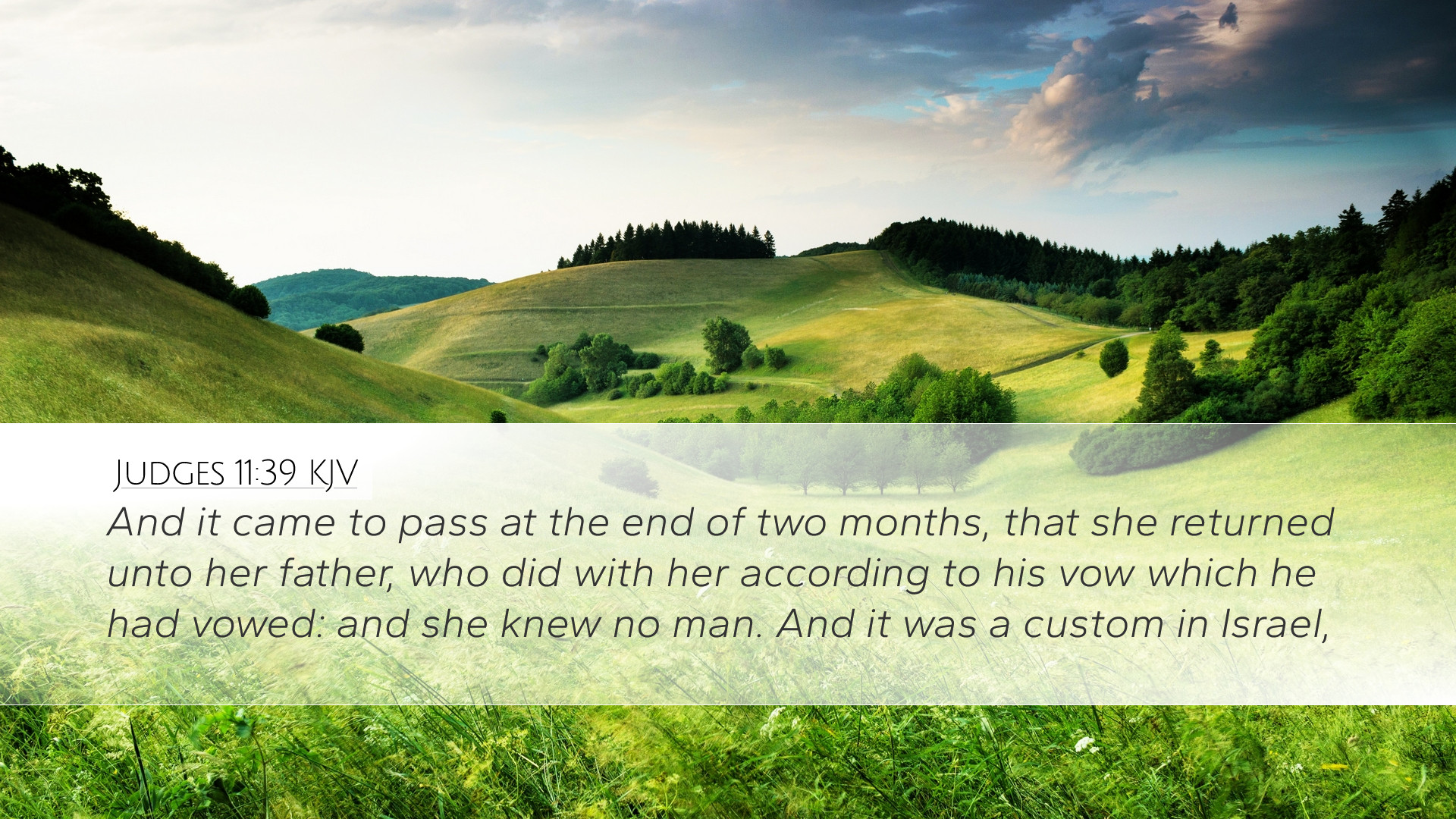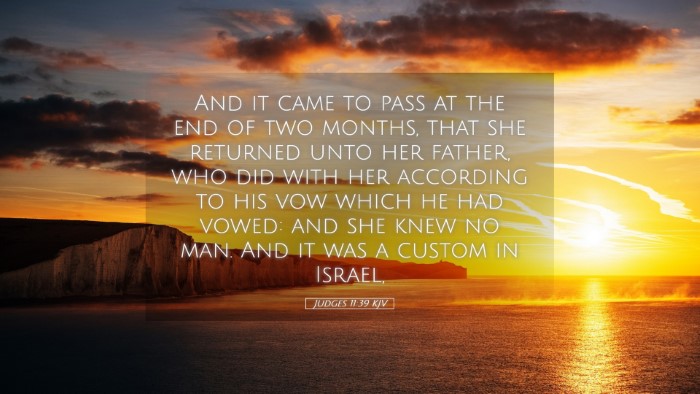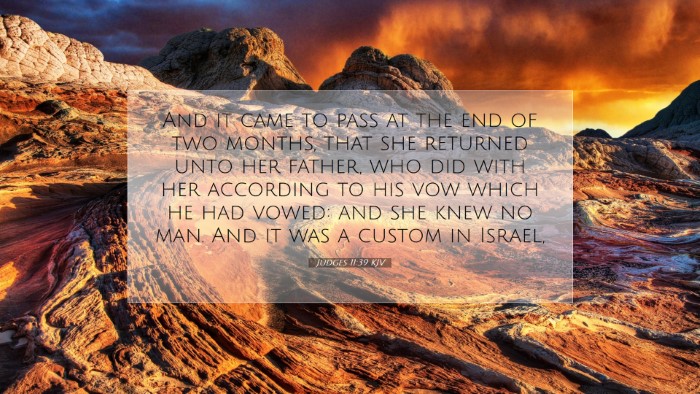Commentary on Judges 11:39
Judges 11:39 states: "And it came to pass, when the daughter of Jephthah heard her father tell his vow, that she went to meet him, and she was his only child; beside her he had neither son nor daughter." This verse encapsulates a poignant moment in the narrative of Jephthah and highlights themes of sacrifice, loyalty, and the tragic outcomes of rash vows. Below is a synthesis of notable commentaries from Matthew Henry, Albert Barnes, and Adam Clarke on this verse.
Contextual Overview
This verse stems from a broader narrative where Jephthah, a mighty warrior, vows to the Lord that if he is granted victory over the Ammonites, he will offer as a burnt offering the first thing that comes out of his house to greet him upon his return. Tragically, this turns out to be his own daughter. Understanding the context is vital to grasp the gravity of Jephthah's situation.
Commentary Insights
Matthew Henry's Commentary
1. The Consequences of Rash Vows: Matthew Henry emphasizes the seriousness of vows made to God. He argues that Jephthah's vow, though made with good intentions to honor the Lord, ultimately leads to an unimaginable tragedy. This serves as a warning against making promises without fully considering the consequences.
2. The Daughter's Faithfulness: The commentary highlights the daughter’s loyalty and faithfulness to her father. Upon learning about her father’s vow, she does not rebel but submits willingly to her fate, showcasing her remarkable character and the strength of familial bonds.
Albert Barnes' Notes on the Bible
3. Nature of Jephthah’s Vow: Barnes provides insight into the interpretive difficulties of Jephthah’s vow. He notes that while Jephthah might have intended to sacrifice an animal, the text points to the human cost, forcing readers to grapple with the moral implications of his actions.
4. Cultural Context of Sacrifice: Barnes also elaborates on the cultural backdrop of ancient Israel regarding vows and sacrifices. He notes that in a time of war and desperation, the conception of drastic measures such as human sacrifice may have been clouded by a zeal for victory.
Adam Clarke's Commentary
5. The Grief of Jephthah: Clarke delves into the emotional turmoil that Jephthah must have felt upon realizing the implications of his vow. He described Jephthah’s sorrow as deeply resonating, stating that it juxtaposes the glory of victory with the agony of personal loss.
6. Symbolic Meaning: Clarke interprets the daughter’s meeting with her father as a symbol of the ultimate sacrifice often required in the service of justice and divine will. The situation serves as an allegory of the human condition—where dedication can lead to profound loss.
Theological and Moral Reflection
This verse invites theological reflection on the nature of vows and the character of God. It raises questions about the extent of sacrifice and the cost of obedience. Here are several key takeaways for pastors and scholars:
- Understanding Vows: The importance of making vows carefully, recognizing their potential impact, and the need for discernment in promises made to God.
- The Role of Women: The dignity and agency of Jephthah's daughter highlight the often overlooked strength and resolve of women in biblical narratives.
- God’s Providence in Tragedy: Reflecting on how God can work through human error and tragedy, offering lessons that resonate beyond the immediate context.
Conclusion
Judges 11:39 offers a poignant account that weaves together themes of sacrifice, faith, and the grave consequences of our commitments. It serves as a reminder to approach our vows to God with the utmost respect and reflection. The insights gathered from Matthew Henry, Albert Barnes, and Adam Clarke provide a robust framework for understanding the complexities of this text, urging modern readers to engage deeply with its message.


